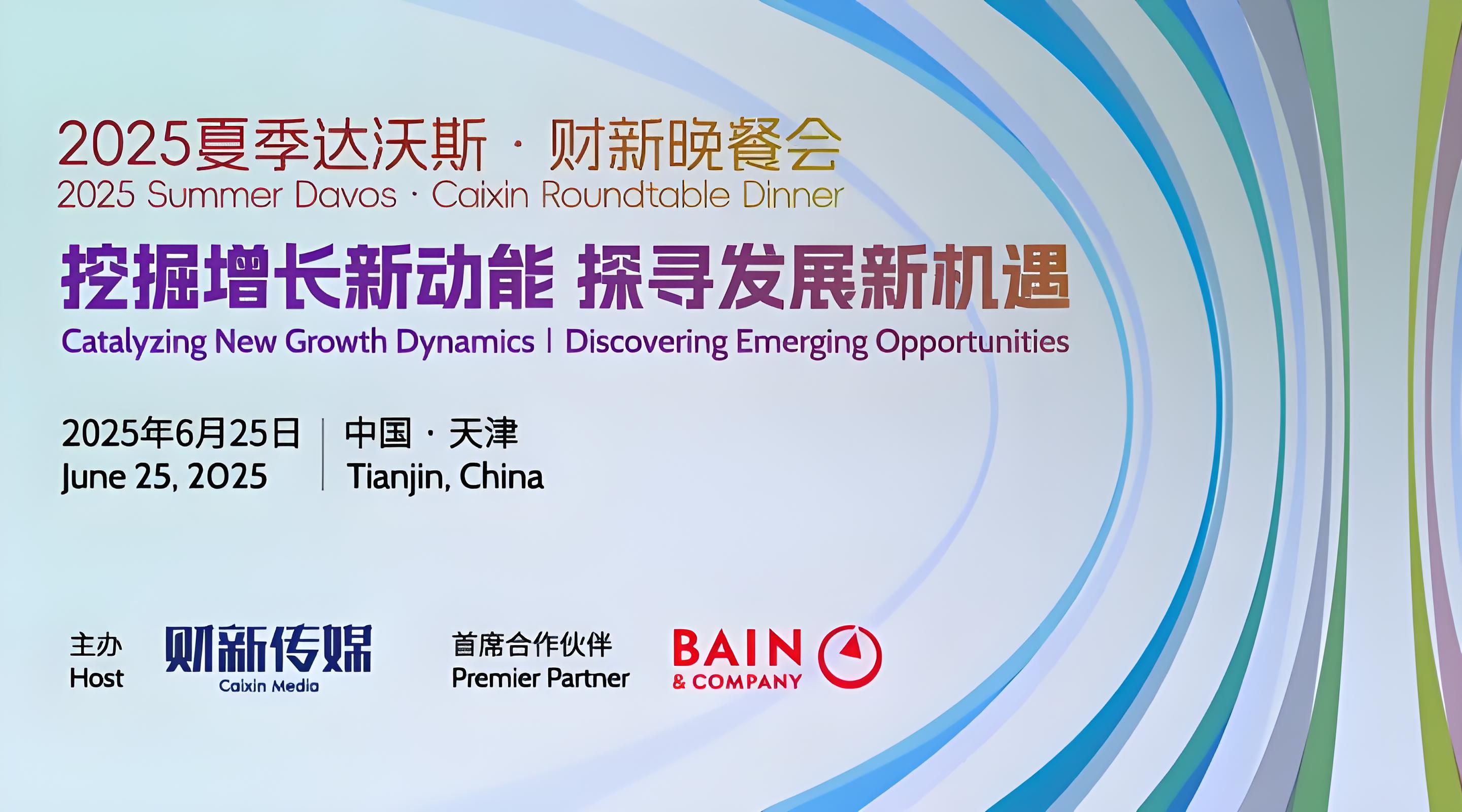
6月25日晚,财新传媒举办2025夏季达沃斯·财新晚餐会,主题设定为“挖掘增长新动能 探寻发展新机遇”,重点聚焦新兴技术如何释放更具活力和韧性的经济机遇、人工智能的商业化应用及产业赋能、企业数字化转型等热点议题,旨在获得更多前瞻性的洞察与思考,在急速变化的时代,最大发挥企业家精神。
贝恩公司全球专家团队出席本次夏季达沃斯·财新晚餐会,与各领域的领袖展开对话,分享洞察,他们分别是:贝恩公司亚太区总裁Satish Shankar;贝恩公司全球合伙人、亚太区高级数据分析业务主席Richard Fleming;贝恩公司资深全球合伙人、亚太区私募股权基金业务联席主席杨奕琦;以及贝恩公司全球专家合伙人刘洋。

北京大学国家发展研究院院长黄益平在主题发言中表示,过去这十几年尤其是全球金融危机以来中国一直面临非常大的增长的下行的压力,全要素生产率(TFP)在过去这十几年基本上都是负的,确实到了需要挖掘新动能的时候。早期的增长靠劳动密集型的制造业,后来变成了资本密集型的制造业,在过去这十几年是基建加上房地产,这引发的问题就是我们下一轮靠什么?也许应该考虑在短期把增长目标放的宽松一点,不要咬得太紧。
人工智能的创新就是给经济增长提供难得的机会。中国是有机会的,如果把包括人工智能在内的技术应用好,我们将来的增长速度不一定会下降,其实有可能会上升,或者不要下降得那么快。
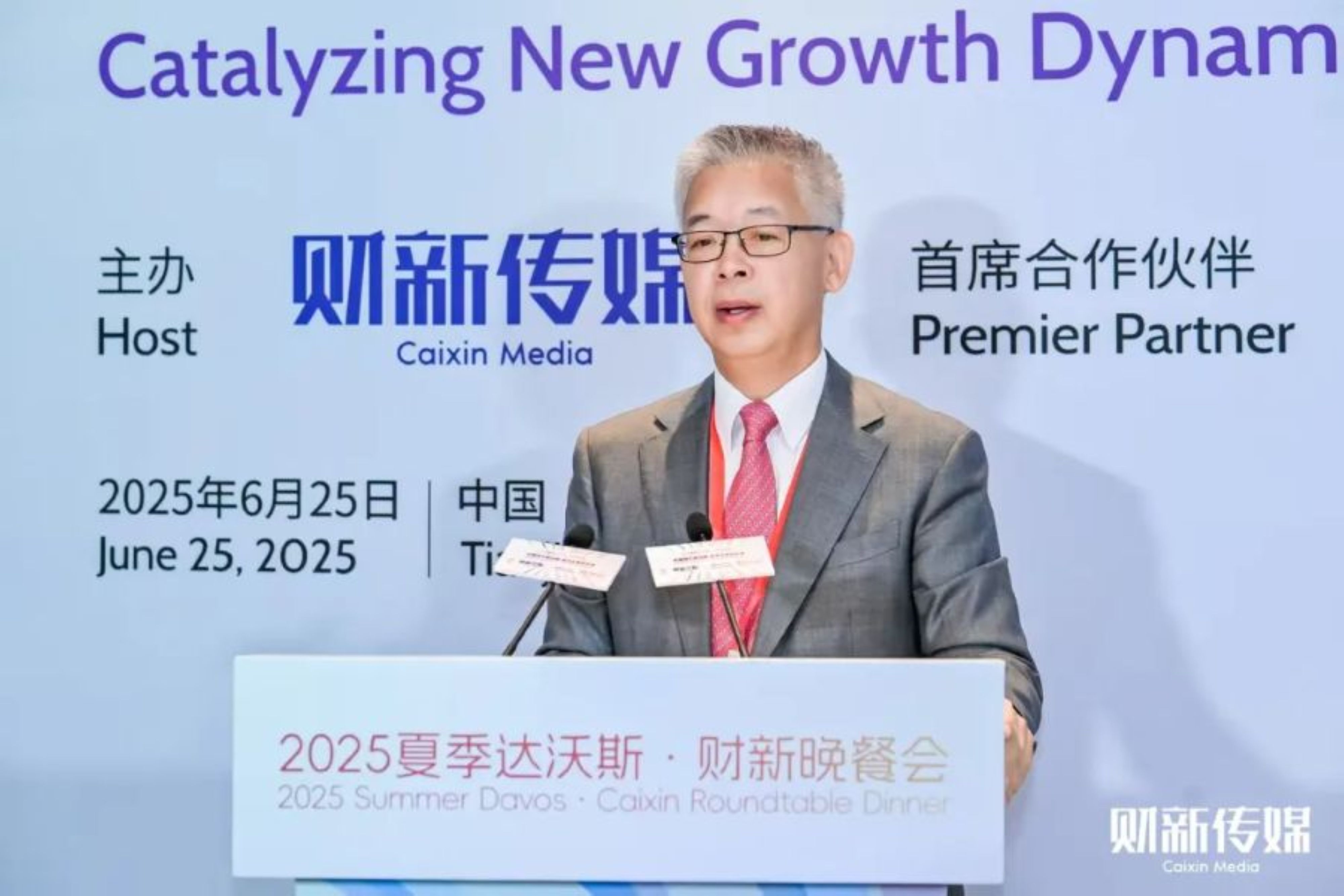
黄益平,北京大学国家发展研究院院长
贝恩公司亚太区总裁Satish Shankar以“在多极世界中蓬勃发展”为题发表主题演讲。当前宏观经济背景面临着世界正在由资本充裕向资本稀缺和资本合理化过渡,老龄化压力逐渐上升,人工智能变革为强劲的经济增长提供飞跃的机会,从全球化到后全球化时代中产业政策也发生着转变。对于商业领袖来讲,世界的过去和现在以及未来的差别是非常大的,在这样一个非常不确定的时代,预测性、灵活度和韧性对于企业是至关重要的。预测性是指预知变化的能力,灵活度是指企业的适应能力,韧性是从冲击当中恢复的能力。
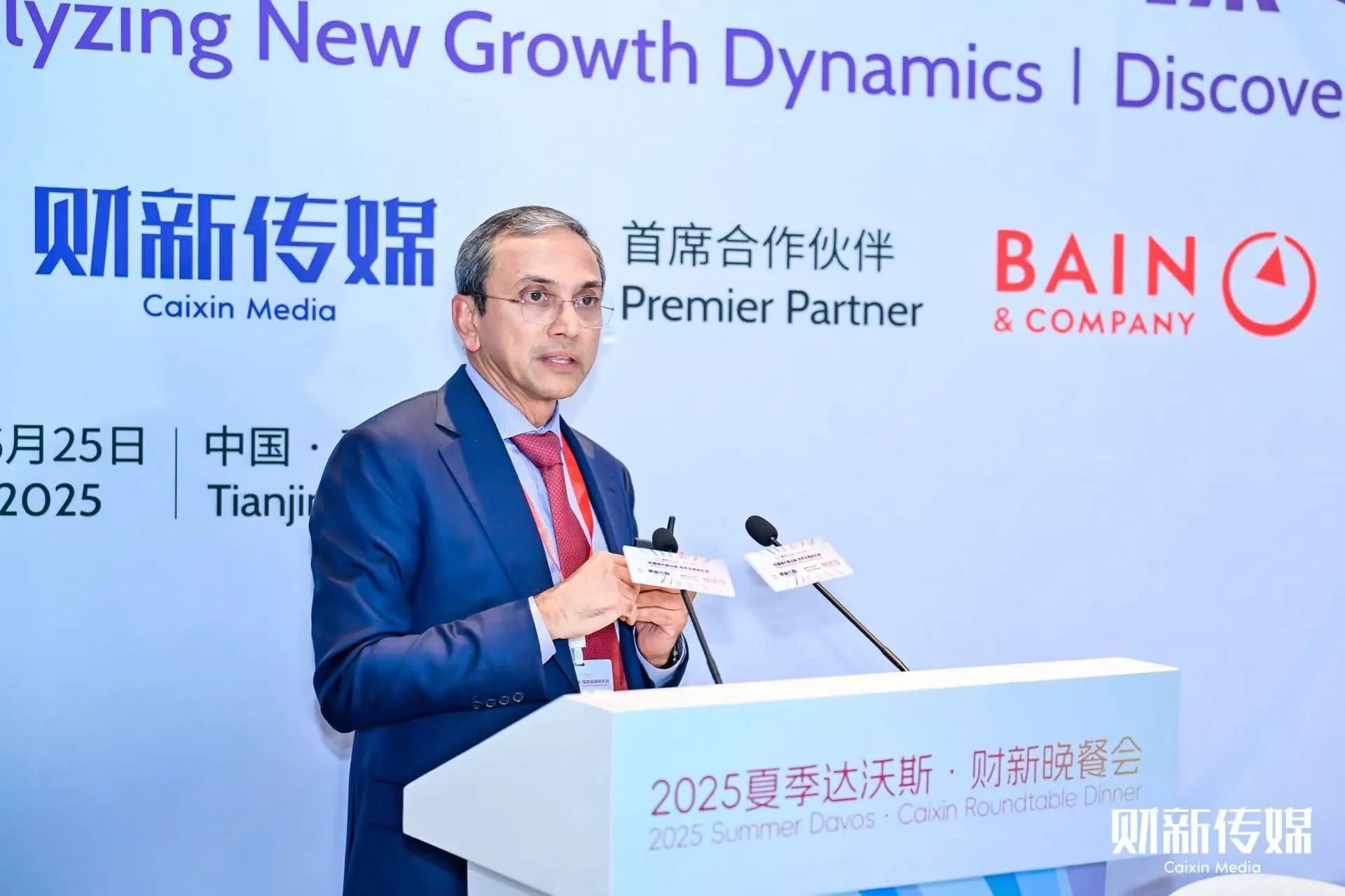
Satish Shankar,贝恩公司亚太区总裁
IBM大中华区董事长、总经理陈旭东以“加速AI规模应用,释放数智生产力”为题发表主题演讲。一个企业能够持续保持发展很重要的就是要跟上这个时代的发展。对于科技领域的公司,唯一能够生存下去的办法就是预测未来的技术发展,然后去投资未来。他提出当下大众对AI的认知还是差异化非常大的,第一个认知误区是将AI等同于生成式AI或大模型,第二是觉得AI无所不能,第三是企业在没有数字化基础时推进AI投资和落地后发现投入产出不合适。AI的关键不是技术问题,也不是钱的问题,而是需求的问题,企业里必须得有明确的需求才能做AI。
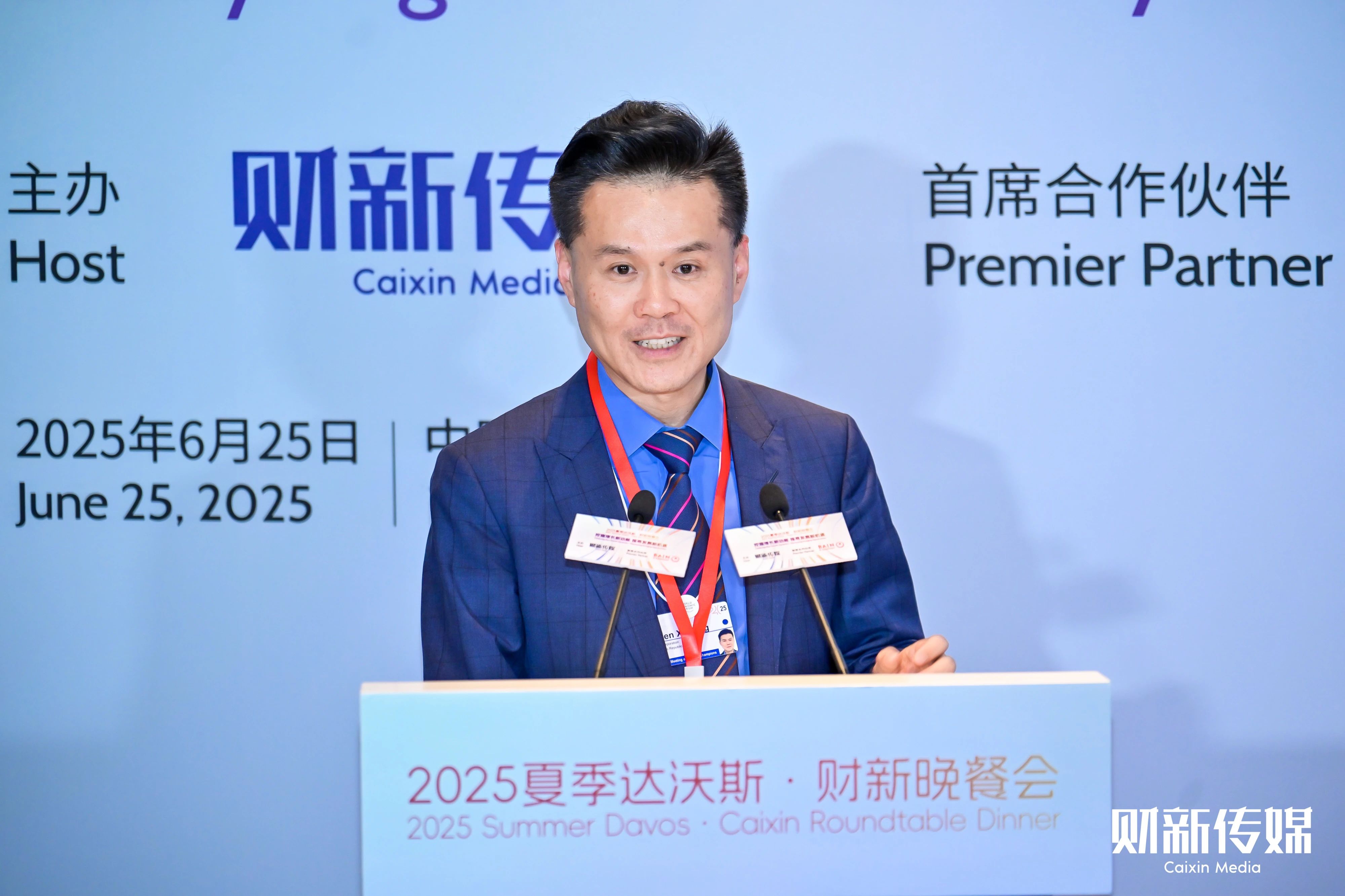
陈旭东,IBM大中华区董事长、总经理
在以“AI如何重塑行业新生态、新未来?”为主题的圆桌讨论环节,来自深圳云天励飞副总裁郑文先,云深处科技创始人兼CEO朱秋国,上海交通大学上海高级金融学院金融学教授朱宁,东软集团高级副总裁、董事会秘书王楠,以及贝恩公司全球合伙人、亚太区高级数据分析业务主席Richard Fleming,聚焦“人工智能+”应用爆发的奇点,一起探索AI技术深度赋能智能制造、生物医药、金融、能源转型等细分垂直领域的发展突破。本环节由财新传媒副总裁,财新国际董事总经理李昕主持。
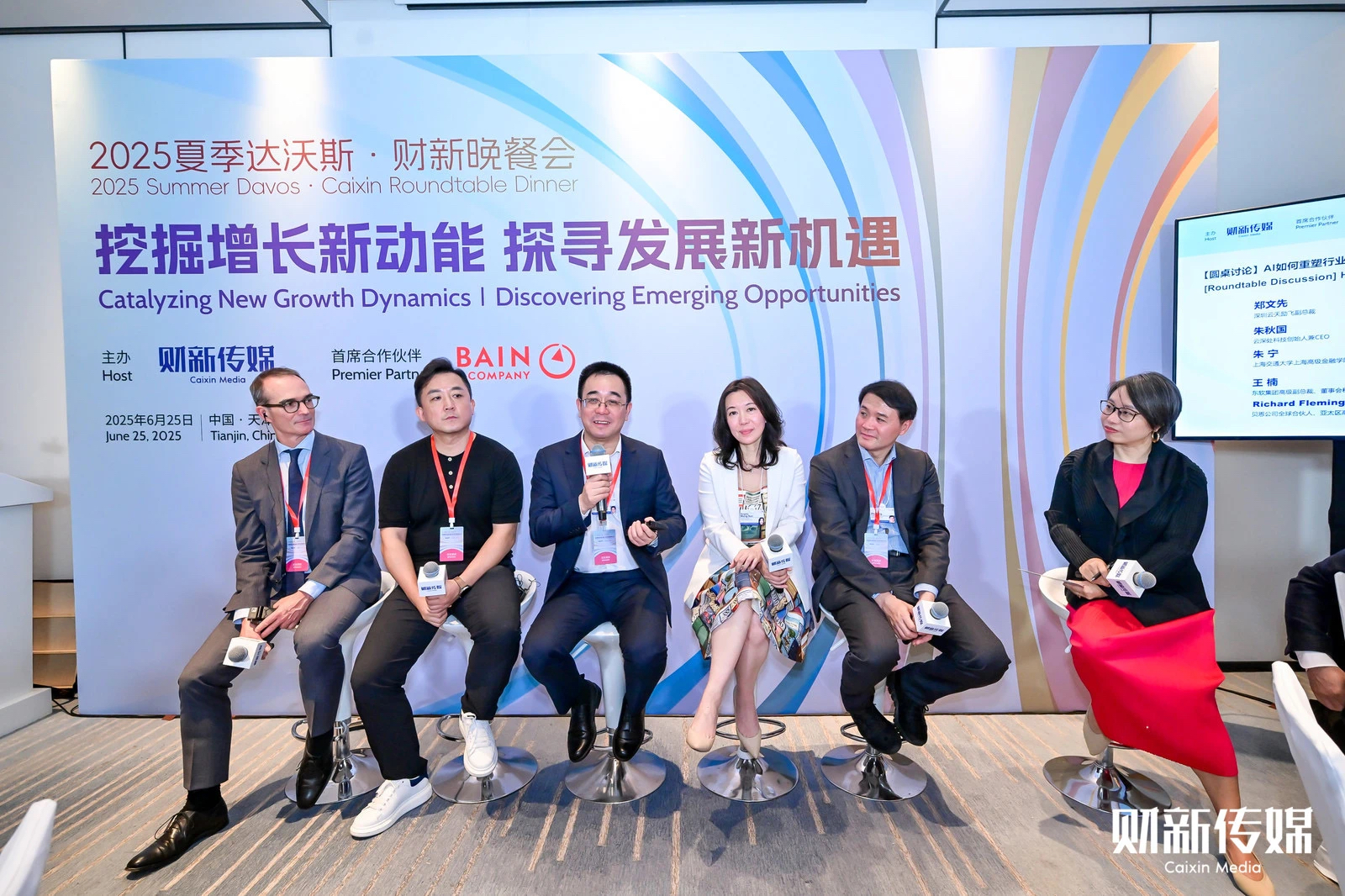
【圆桌讨论】AI如何重塑行业新生态、新未来?
深圳云天励飞副总裁郑文先表示,AI进入到云AI和大模型时代后,企业的规模化应用仍面临挑战,坦率来说并不是企业没有需求,而是使用过程中有很多的问题,比如第一大模型成本很高,第二数据隐私保护需要技术与法规协同。未来中国AI芯片发展,要关注的不仅是制造环节,而是需要兼顾制造技术突破与软件生态构建,这是一个漫长但是必须坚持要突破的方向。
现在业界普遍认为,到2026年全世界80%以上企业和机构的工作流都会基于大模型来开展,到2028年才有可能真正意义上进入到具身智能的阶段,到2030年有可能看到通用人工智能的曙光,来到真正意义上的AI奇点时刻。
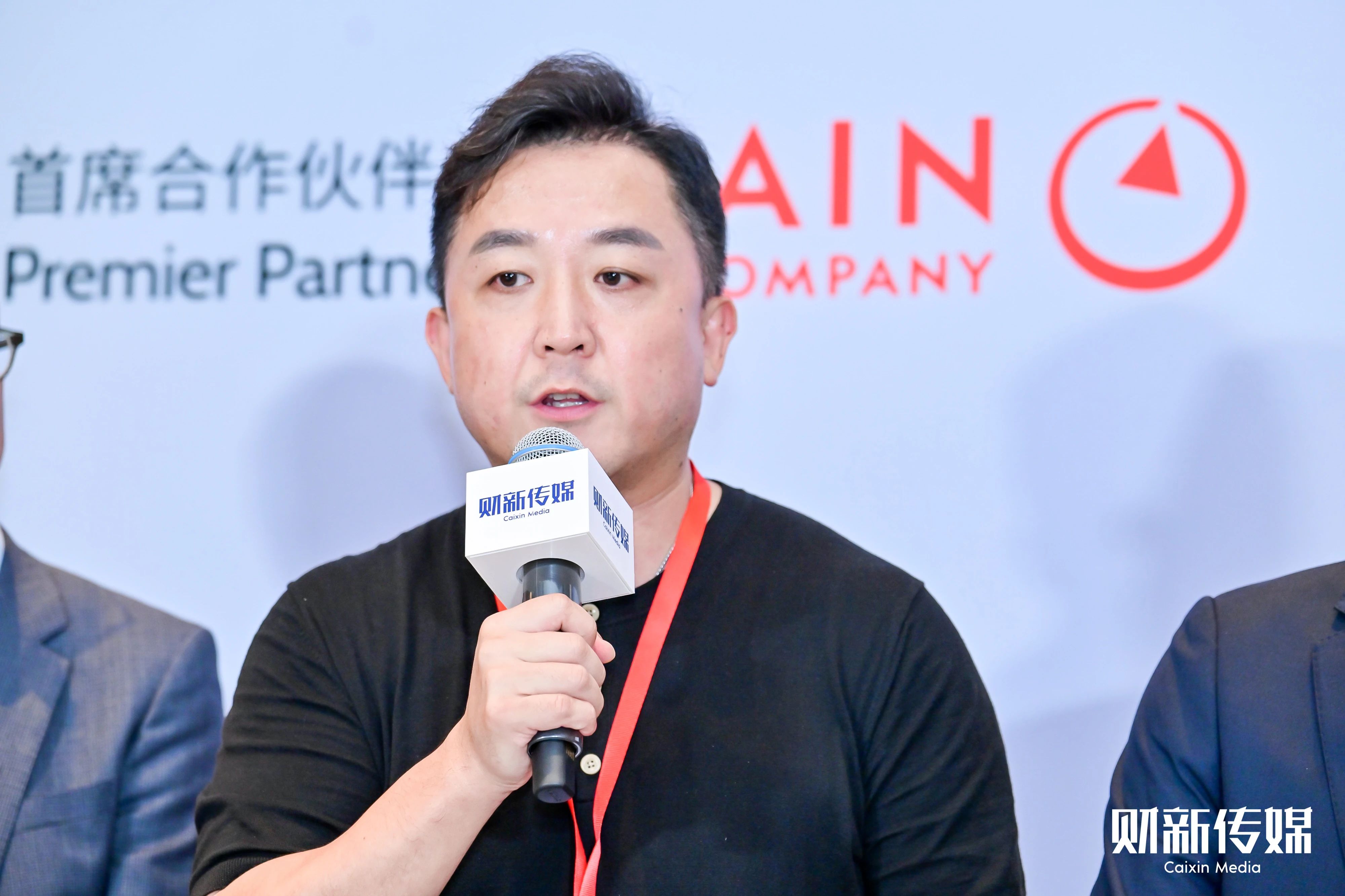
郑文先,深圳云天励飞副总裁
云深处科技创始人兼CEO朱秋国指出,具身智能当前的发展可分为两条线,一是以大模型为主的AI发展,另外一条线是做机器人。具身智能可以填补机器人技术和大语言模型技术中间的鸿沟,但这中间的技术充满挑战。把AI的技术变成要去理解物理世界、在物理世界里去应用的技术,要解决里面很多问题。如果能够解决,机器人会迎来大规模的具身的应用。
所以对于真正技术的核心点来说还没到奇点,但应用的需求在这里了。
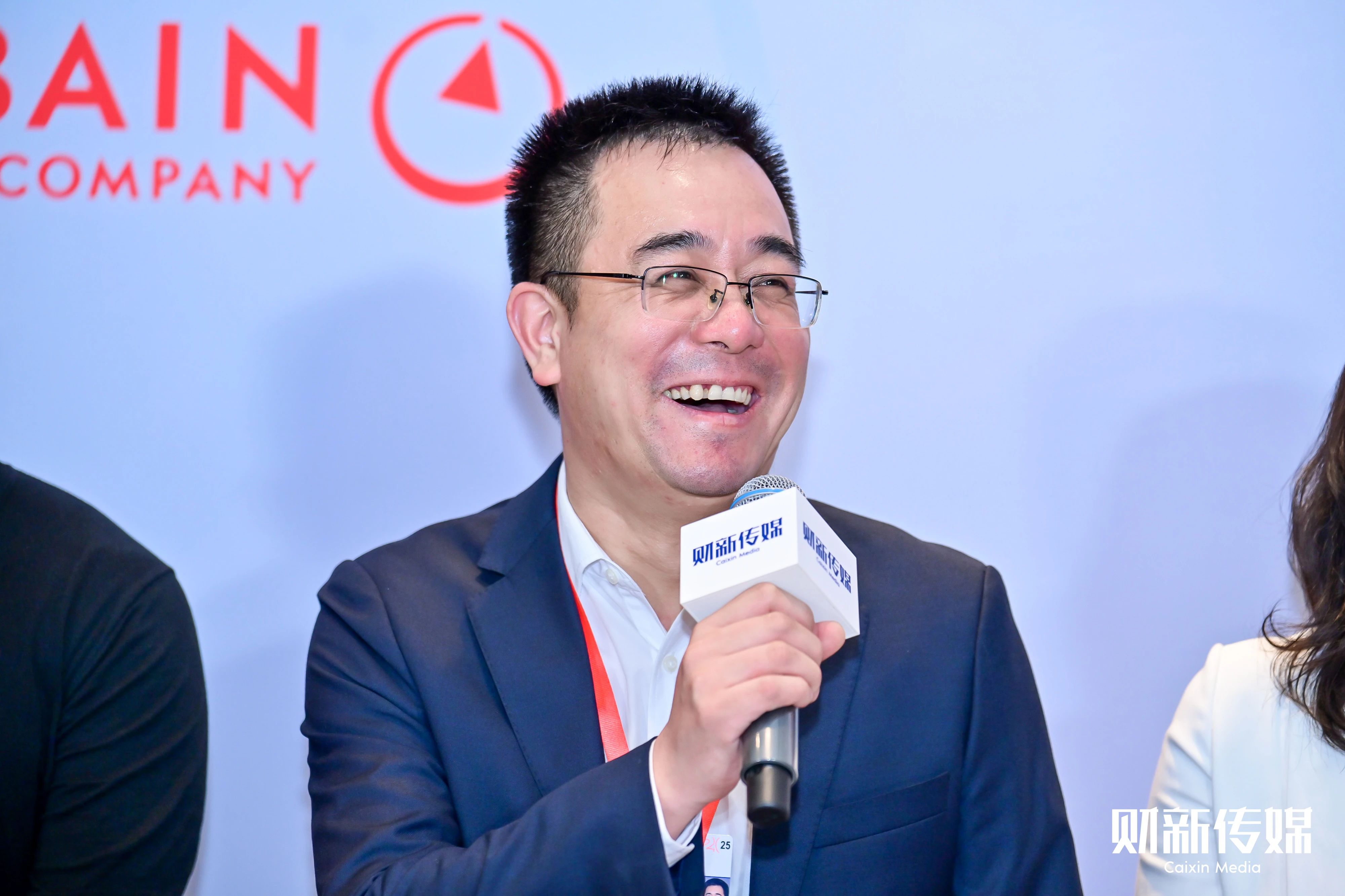
朱秋国,云深处科技创始人兼CEO
上海交通大学上海高级金融学院金融学教授朱宁从金融角度出发谈及AI的应用:一是关于投资研究,AI融入投资分析的框架、逻辑和分析的工具里,会对整个全球的资本市场产生冲击和影响;二是Fintech,通过科技的进步能够提升金融的包容性和降低成本。
从教育领域来看,AI会改变很多今后职业发展的规划。如何培养更适应AI时代的学生?我们经常会跟年轻学生讲,不要总想AI会替代什么,更多的想怎样能够和AI共生和利用AI的帮助把工作做得更好。
技术是比较中性的,但是最后技术的应用可能会带来非常广泛和深远的影响,因此在谈整个AI的前景和潜力时,我们也要意识到它是否会对社会伦理、道德、监管等层面提出一些挑战。
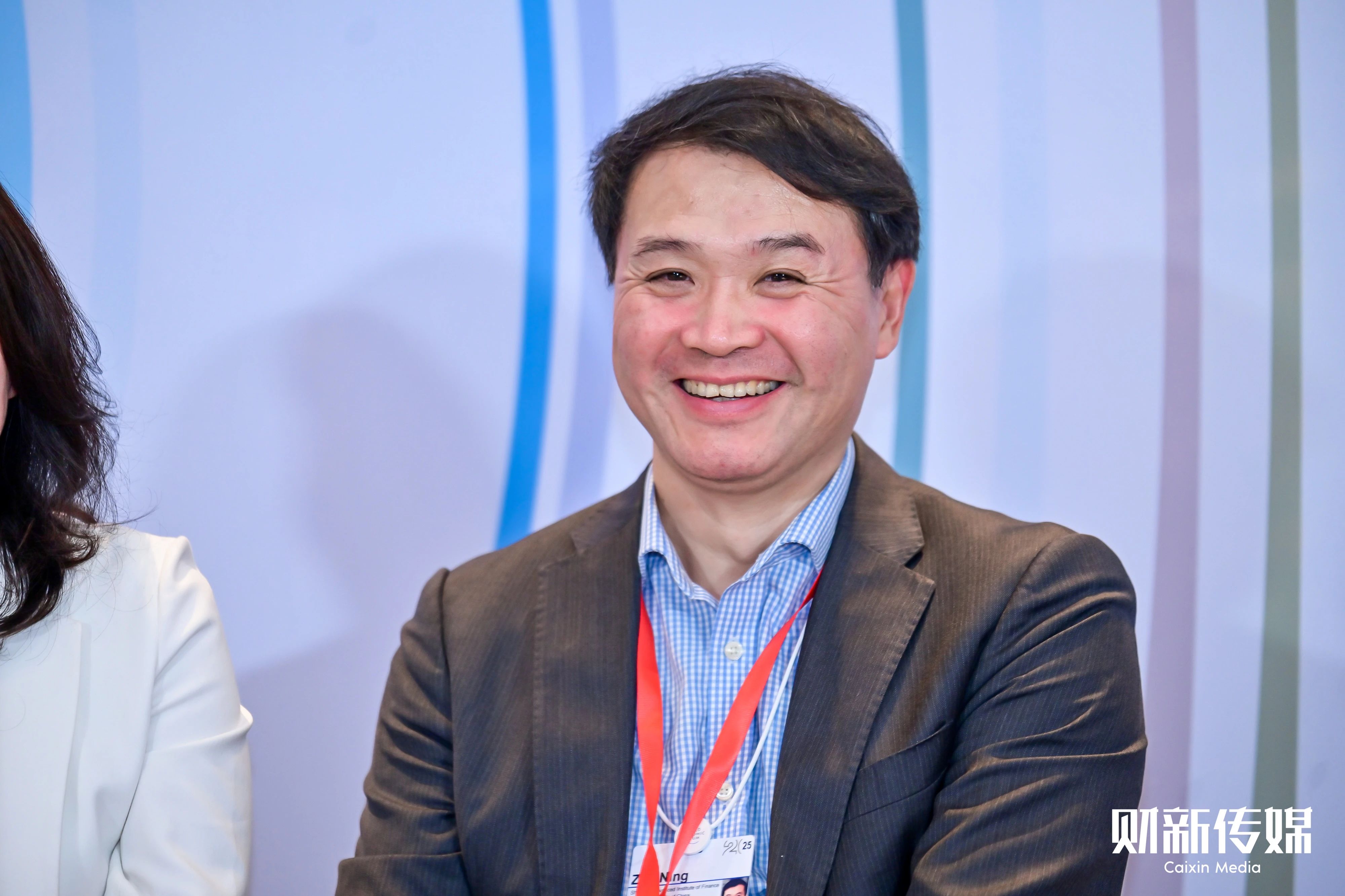
朱宁,上海交通大学上海高级金融学院金融学教授
东软集团高级副总裁、董事会秘书王楠表示AI+的需求的奇点已经到来。中国在电动汽车方面真正的booming发展,是因为居民需求,这一点是推动了产业发展不容忽视的一只大手。与此同时,需求的急迫性对于中国的AI+应用的发展也是一件绝不容忽视的事情。
从医疗AI创新领域来讲,现在医院强烈呼吁“AI+”的创新,越是顶级的医生下场参与AI的开发是行业的趋势。在垂域应用时,不仅使用模型训练,也会结合专家及临床医生的经验和知识。现在的AI的应用不是为了替代医生,而是让基层的普通医生变得跟一家三甲医院的医生差不多的水平,这才是真正的普惠。
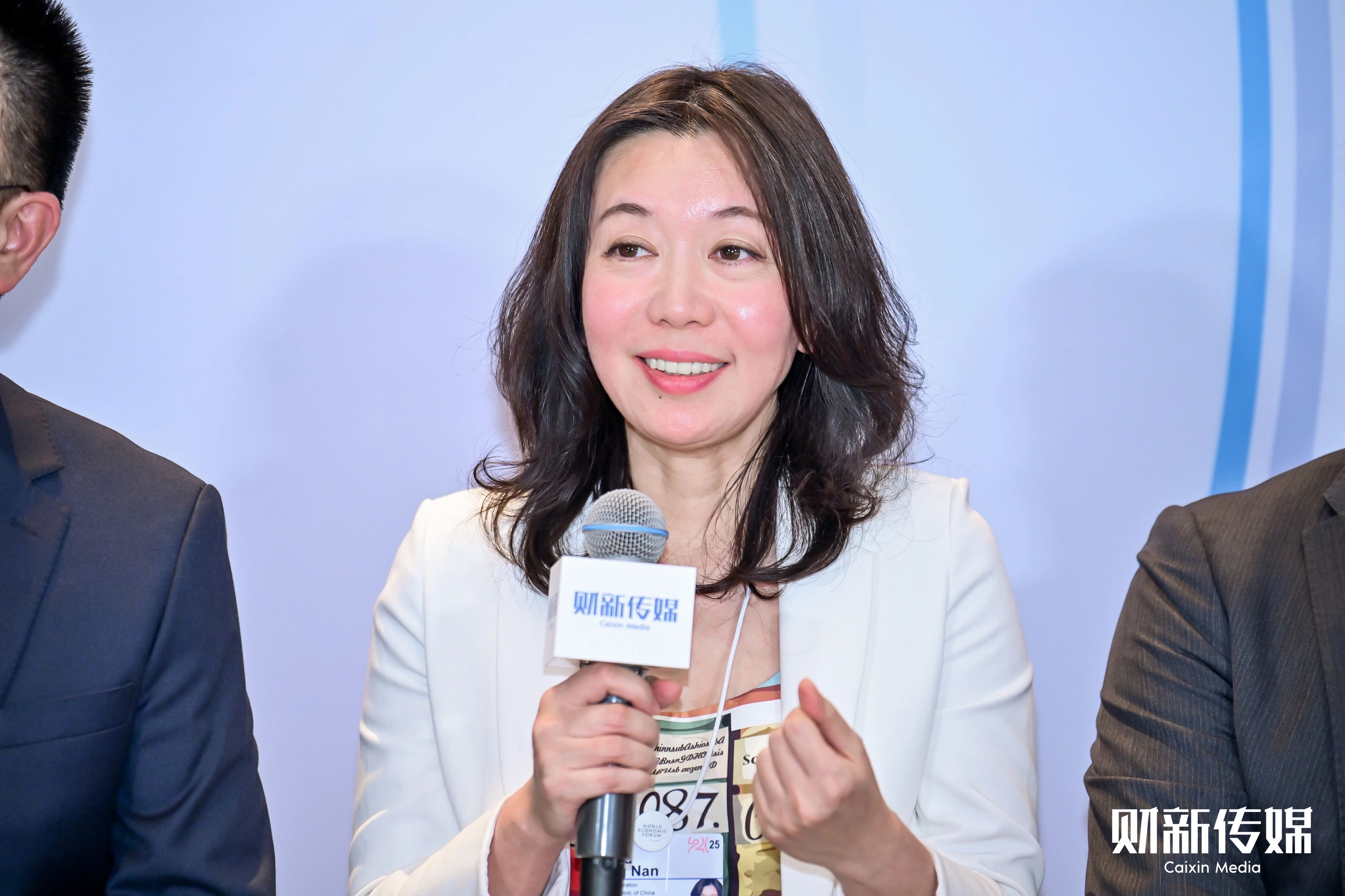
王楠,东软集团高级副总裁、董事会秘书
贝恩公司全球合伙人、亚太区高级数据分析业务主席Richard Fleming表示,很多行业受到人工智能的影响是以三种方式来发生的:一是人工智能可以提高企业的基础性生产力,比如生成式AI会给企业带来一种核心竞争力,能够提高企业的效率;二是人工智能给产品带来更多创新,未来的创新产品在未来还有更多新的市场;三是人工智能会潜在的提高企业核心业务的运营效率和有效性。至于奇点来讲,最大的挑战在于我们对于技术的应用和吸收,这对于很多企业而言是一种技术和商业的转型。
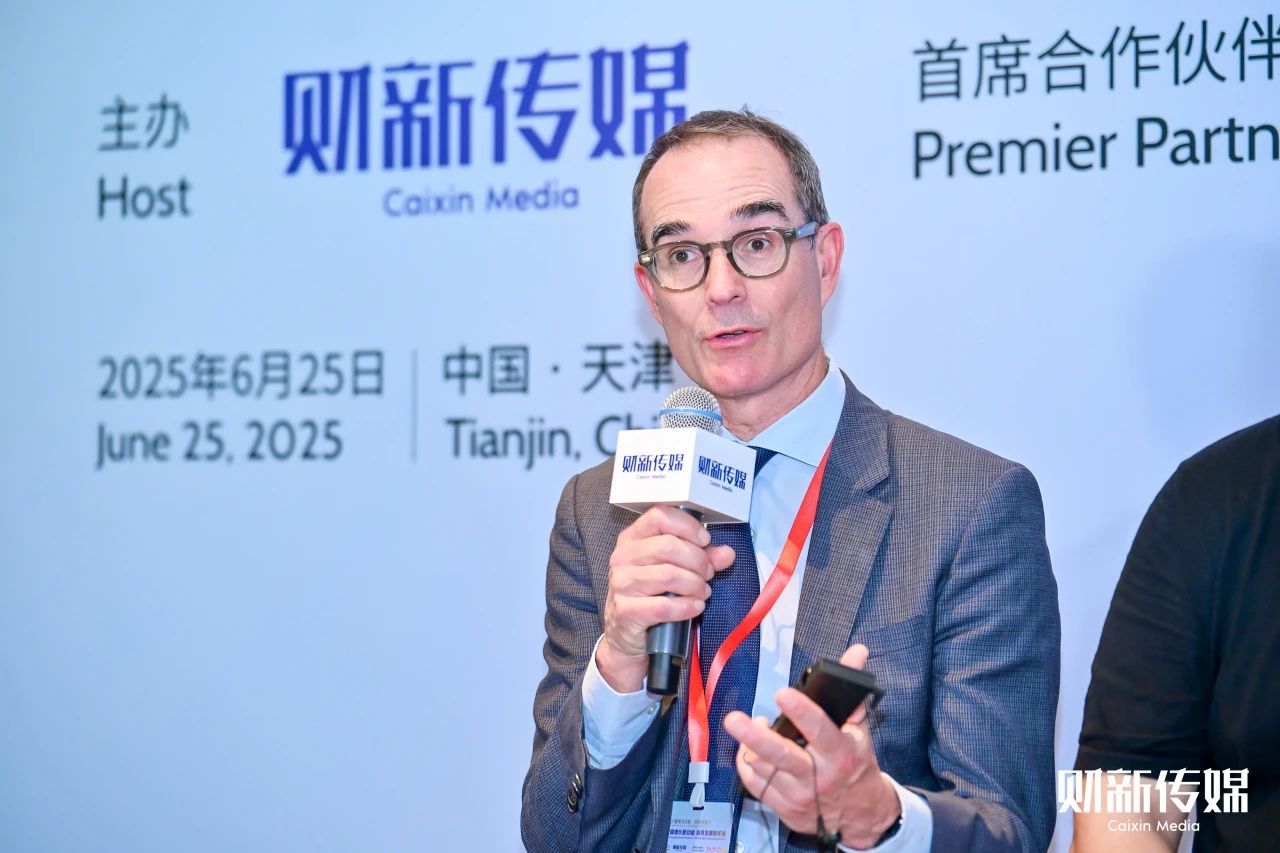
Richard Fleming,贝恩公司全球合伙人、亚太区高级数据分析业务主席
自2010年起,财新多次作为世界经济论坛的“媒体合作伙伴”参与冬季达沃斯和夏季达沃斯并承办分论坛、圆桌会议等。自2013年起财新每年在WEF冬季、夏季年会期间承办官方议程中的财新电视辩论环节。财新首创并持续在年会期间举办早餐会、CEO闭门午宴、夜话、晚餐会等边会活动,对接达沃斯官方发言嘉宾,搭建高端讨论与社交平台。
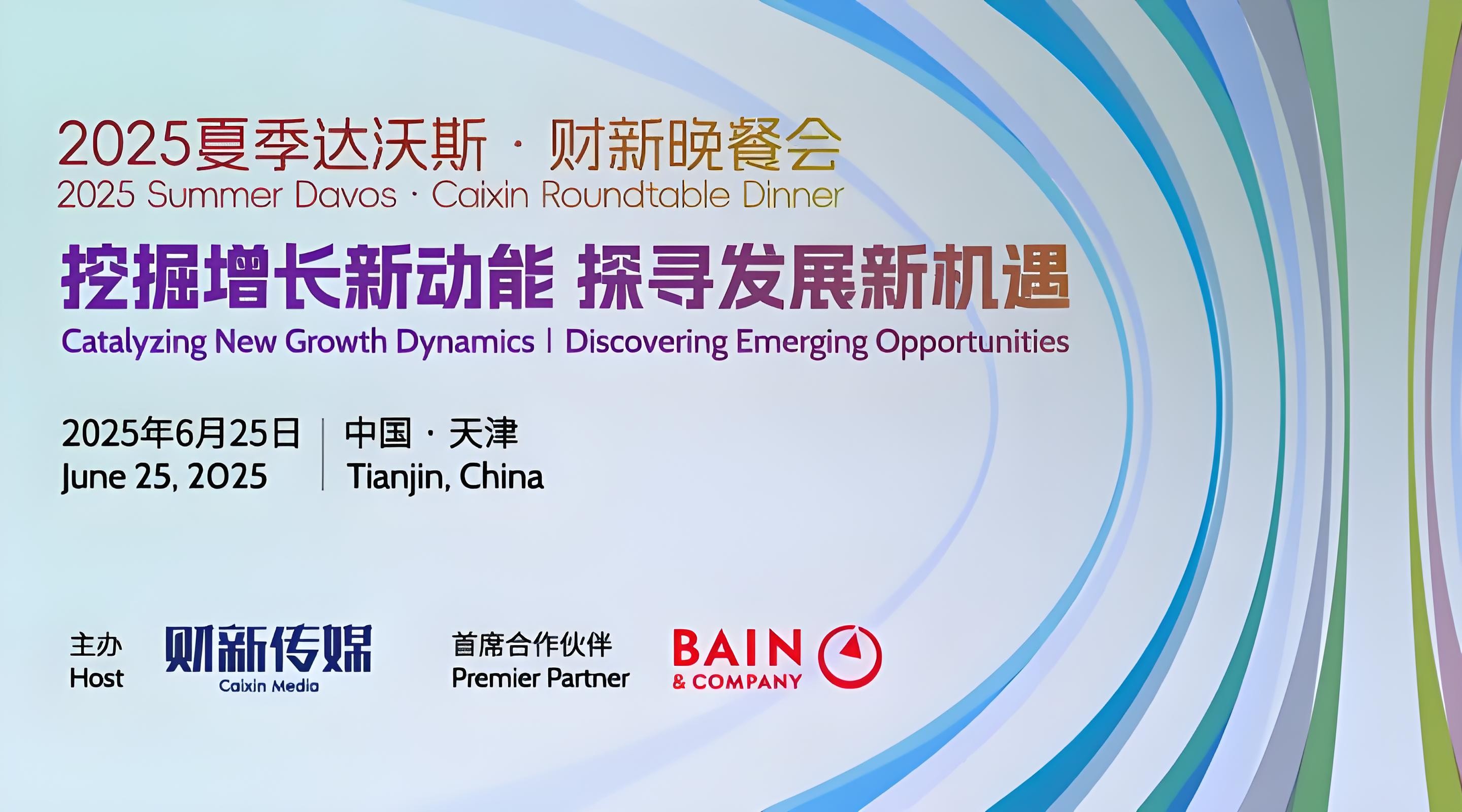
On the evening of June 25, Caixin Media hosted the 2025 Summer Davos·Caixin Roundtable Dinner under the theme "Catalyzing New Growth Dynamics | Discovering Emerging Opportunities." The event focused on how emerging technologies are unlocking more dynamic and resilient economic opportunities, the commercialization and industry empowerment potential of artificial intelligence, and the digital transformation of enterprises. The aim was to foster forward-looking insight and thought leadership in a rapidly changing era, enabling the entrepreneurial spirit to thrive.
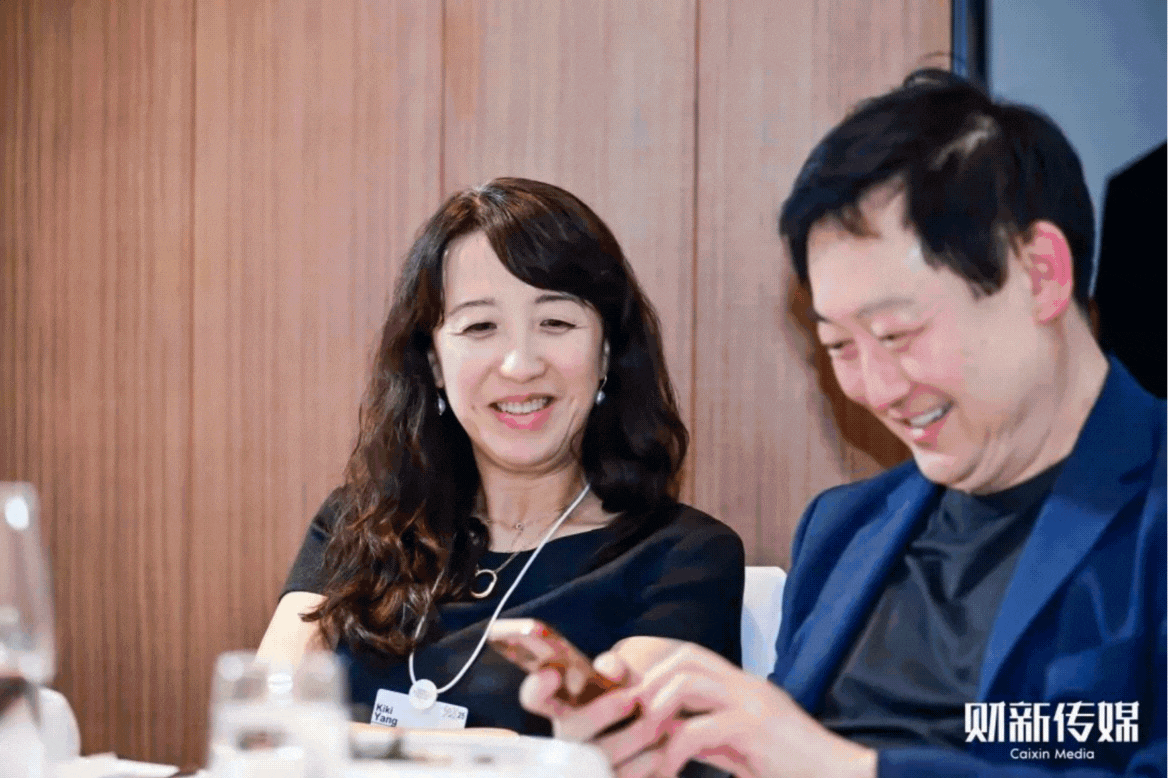
Satish Shankar, APAC Regional Managing Partner at Bain & Company, delivered a keynote titled "Thriving in a Multipolar World." He observed that the macroeconomic landscape is shifting from an era of capital abundance to one of scarcity and rationalization, with rising demographic pressures. While AI presents a leapfrog opportunity for economic growth, the transition from globalization to a post-globalization era is also reshaping industrial policy. For business leaders, the differences between the past, present, and future are profound. "In an era of deep uncertainty, predictiveness, adaptability, and resilience are vital for companies," he said. Predictiveness refers to anticipating change, adaptability to responding to it, and resilience to recovering from shocks.
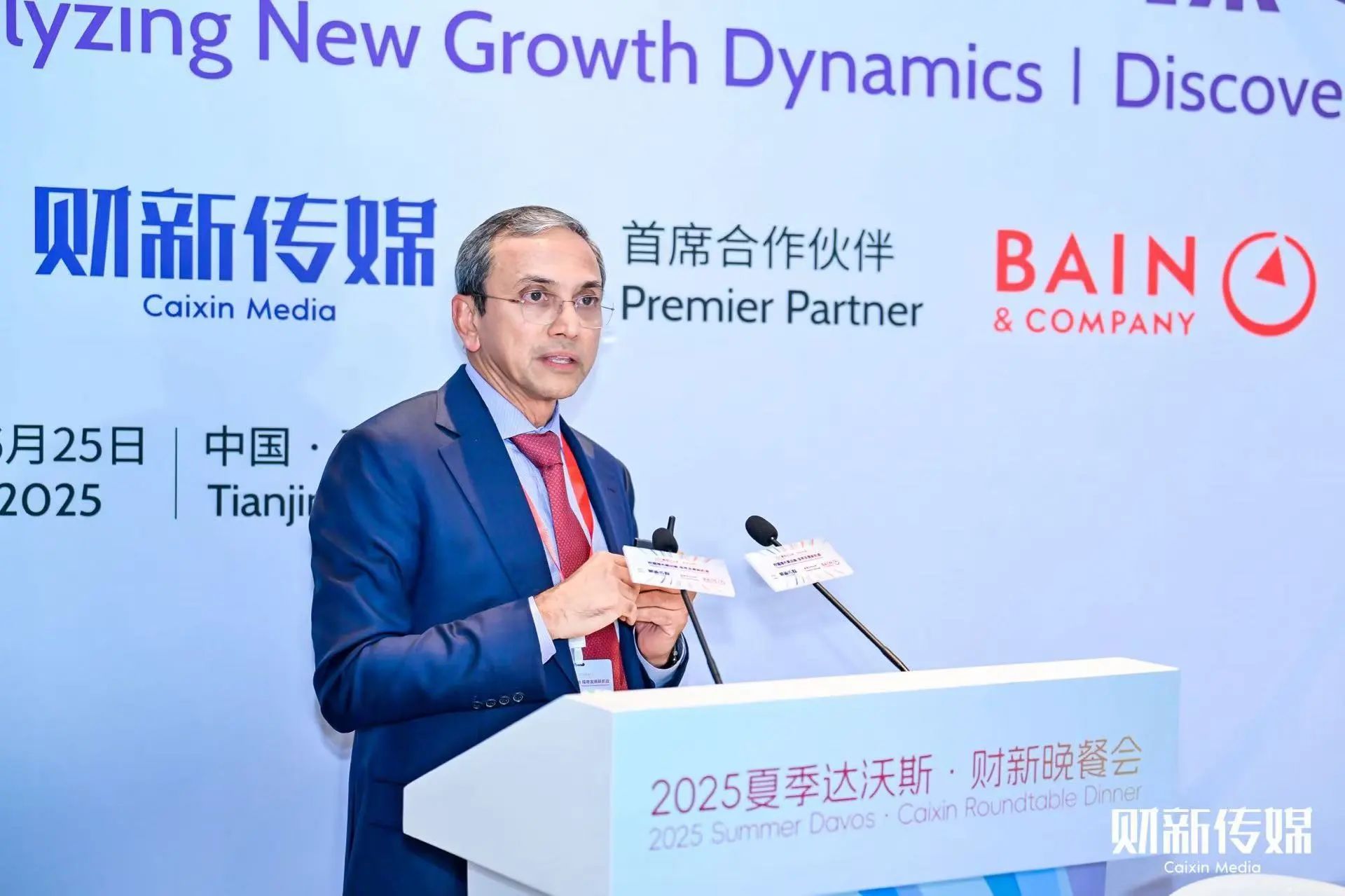
Satish Shankar, APAC Regional Managing Partner, Bain & Company
Richard Fleming, Partner and APAC Advanced Analytics Practice Leader at Bain & Company, outlined three ways AI is impacting industries: enhancing basic productivity (with generative AI creating new core competencies), driving product innovation and unlocking new markets, and improving operational efficiency and effectiveness. Fleming noted that the greatest challenge lies in the organizational transformation required to absorb and apply these new technologies.
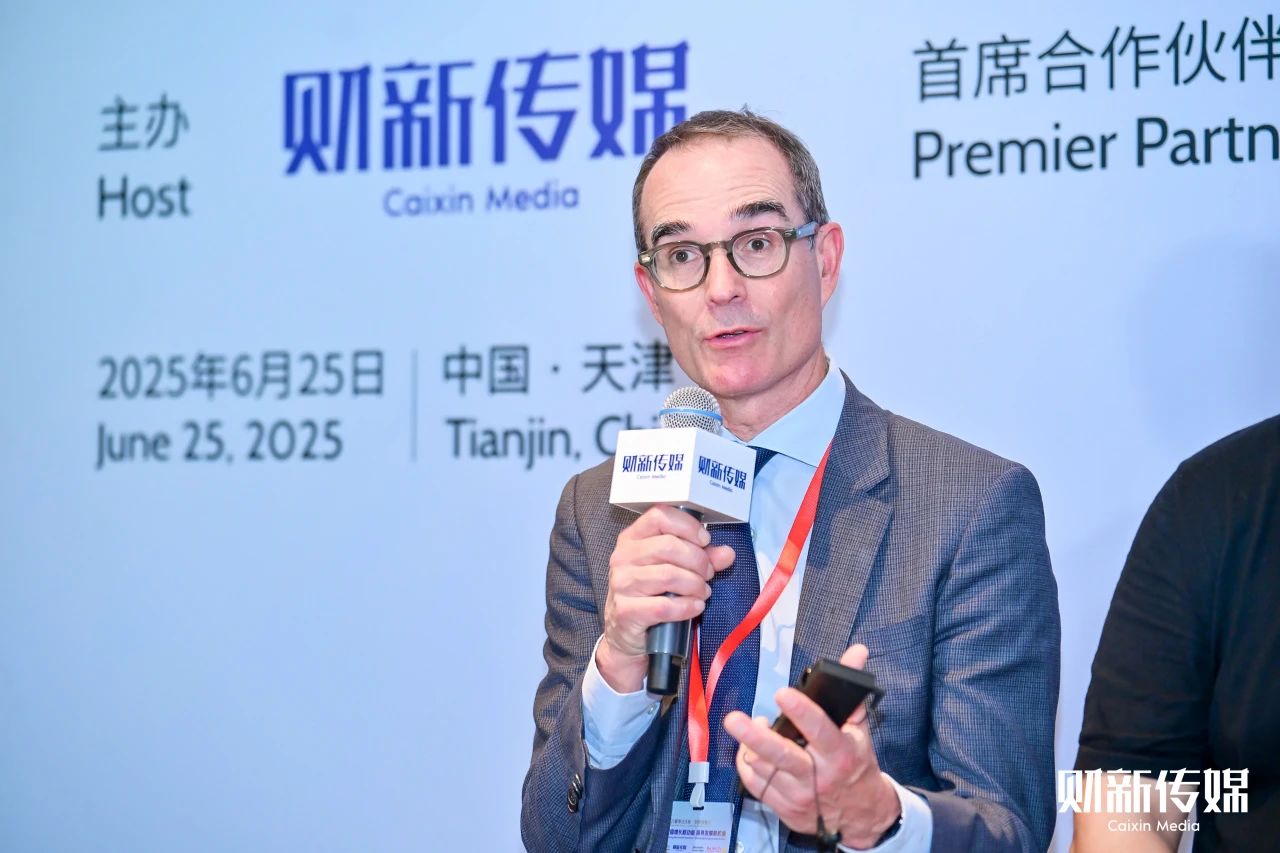 Richard Fleming, Partner, APAC Advanced Analytics Practice Leader, Bain & Company
Richard Fleming, Partner, APAC Advanced Analytics Practice Leader, Bain & Company
In his keynote address, Huang Yiping, Dean of the National School of Development at Peking University, emphasized that China has faced significant downward pressure on growth, especially since the global financial crisis. Total Factor Productivity (TFP) has been negative for much of the past decade, making it imperative to seek new growth engines. Huang noted that earlier growth was driven by labor-intensive manufacturing, later shifting to capital-intensive industries, and more recently, infrastructure and real estate. "The key question is: what will power the next phase of growth? Perhaps, in the short term, we should set more flexible growth targets instead of rigid ones, " he suggested.
He highlighted AI innovation as a rare opportunity for China. If the country can harness technologies such as AI effectively, future growth rates may not necessarily decline—and could even accelerate.
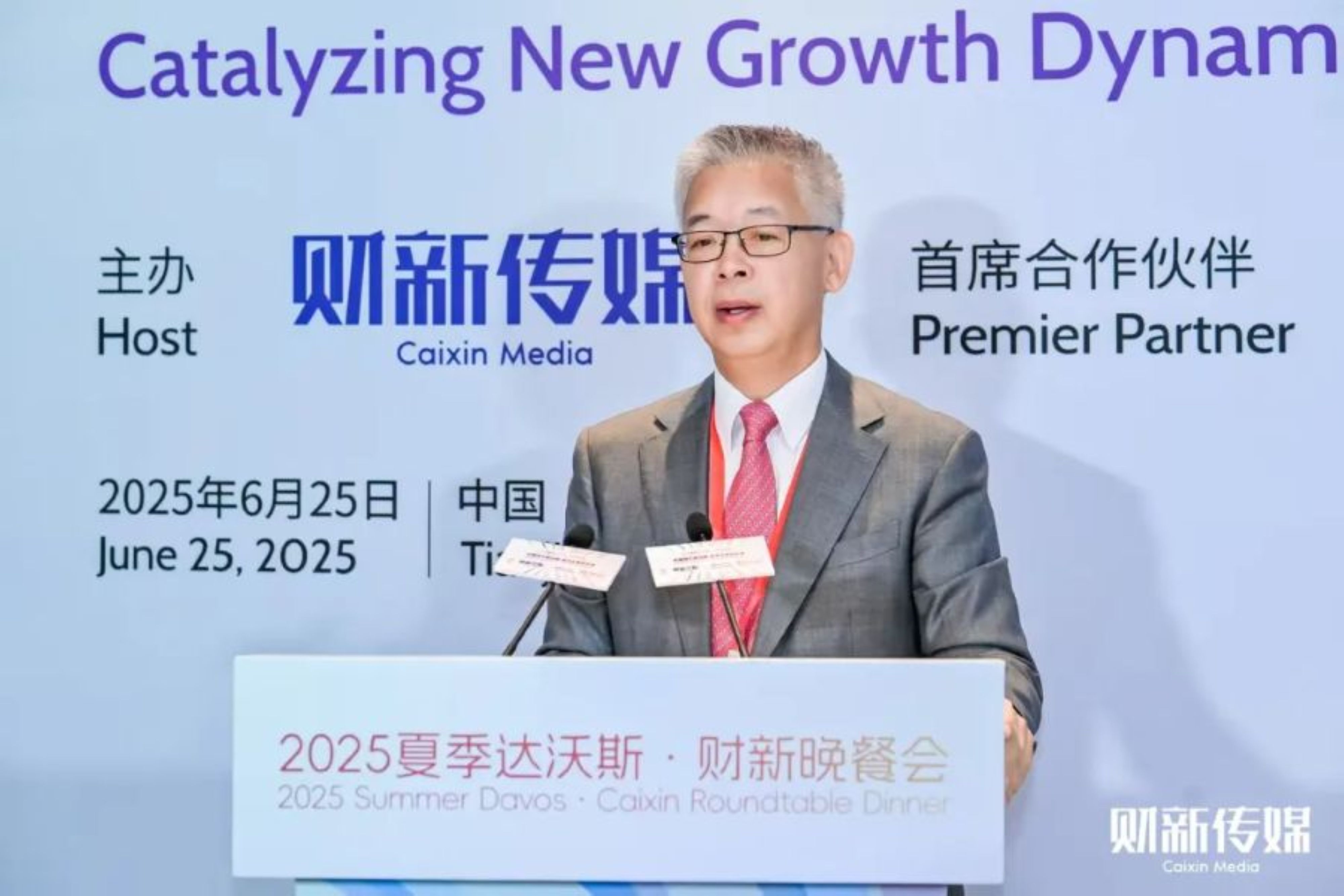
Huang Yiping, Dean, National School of Development, Peking University
Chen Xudong, Chairman and General Manager of IBM Greater China Group, spoke on " Accelerating Scalable AI Applications to Unlock Digital Productivity." He stressed that for a business to sustain growth, it must keep pace with the times. For technology companies, survival depends on anticipating future tech trends and investing accordingly. Chen pointed out three common misconceptions about AI: equating it solely with generative AI or large models; assuming AI is omnipotent; and expecting ROI from AI investments without a digital foundation. "The key to AI is not technology or money, but the demand. Companies need clear use cases to implement AI effectively," he said.
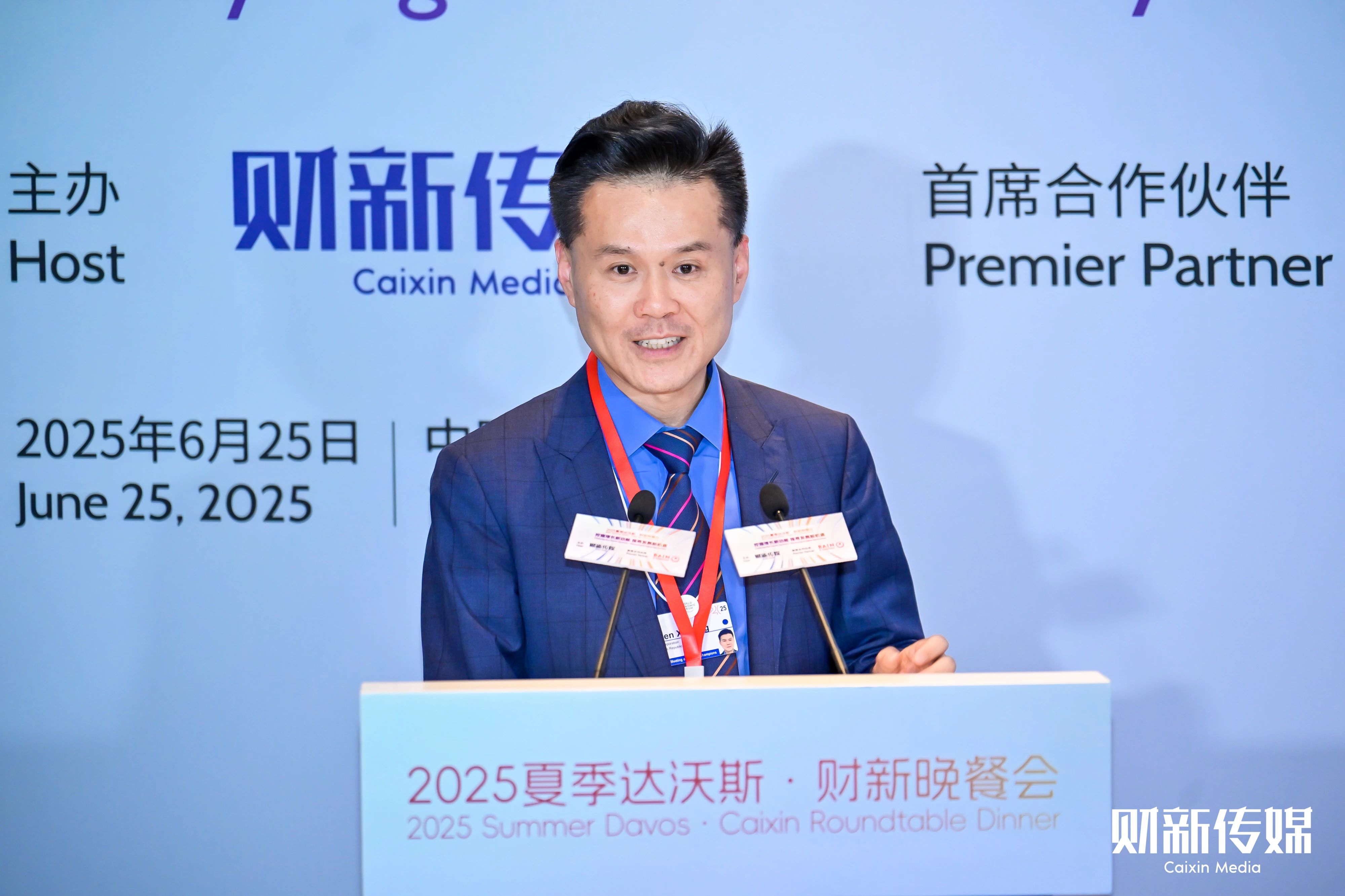 Chen Xudong, Chairman and General Manager, IBM Greater China Group
Chen Xudong, Chairman and General Manager, IBM Greater China Group
During the roundtable discussion, themed "How Will AI Reshape Industries and Redefine Our Future?", panelists delved into the explosion of "AI+" applications and the breakthroughs AI is enabling in smart manufacturing, biopharma, finance, and energy transition. The session was moderated by Li Xin, Vice President of Caixin Media and Managing Director of Caixin Global. Panelists included Zheng Wenxian (Vice President, Shenzhen Intellifusion Technologies), Zhu Qiuguo (Founder and CEO, Deep Robotics), Zhu Ning (Professor of Finance, SAIF, Shanghai Jiao Tong University), Wang Nan (Senior Vice President & Secretary of the Board, Neusoft Corporation), and Richard Fleming (Partner, APAC Advanced Analytics Practice Leader, Bain & Company).
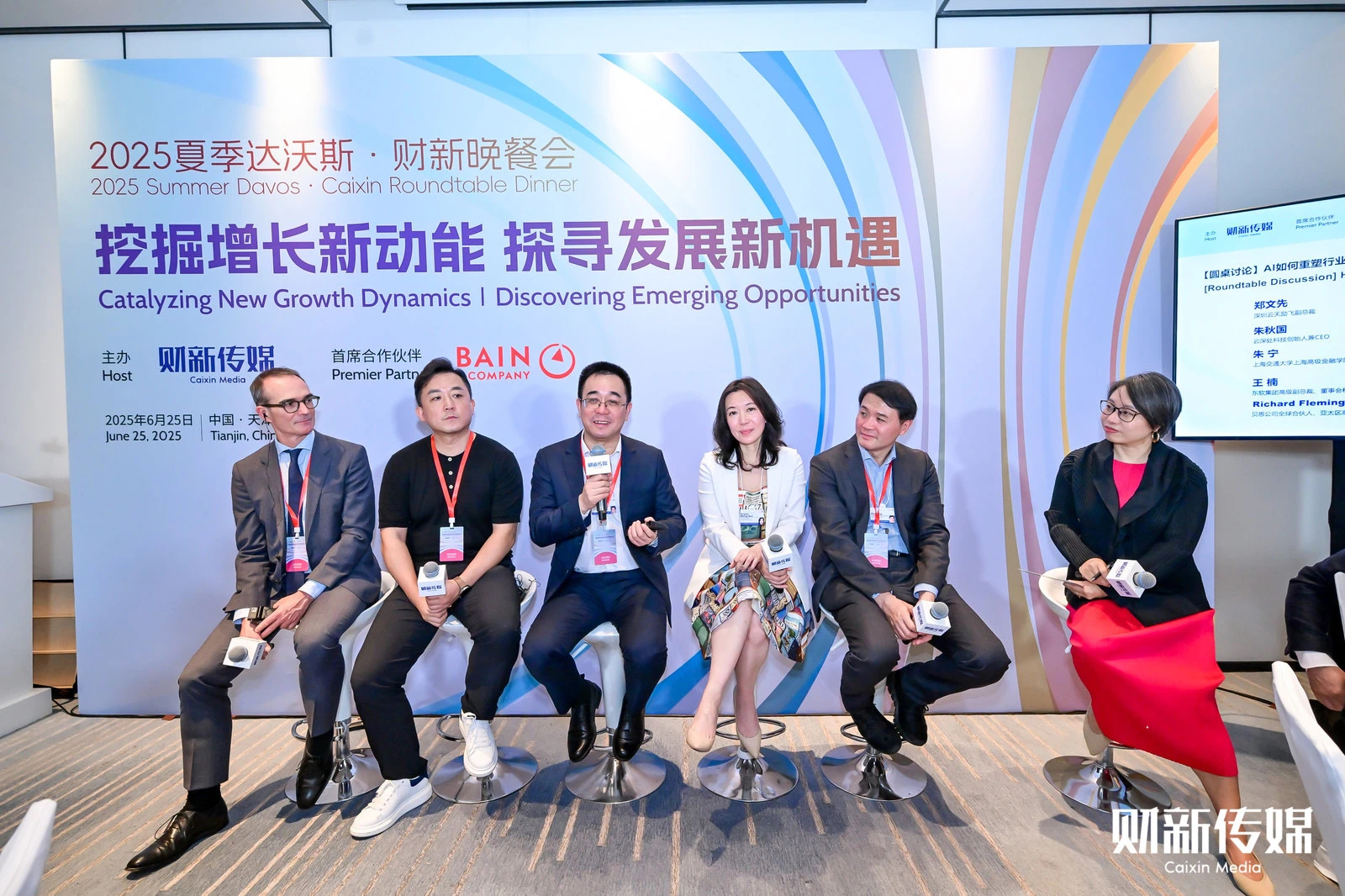 Roundtable Discussion:How Will AI Reshape Industries and Redefine Our Future?
Roundtable Discussion:How Will AI Reshape Industries and Redefine Our Future?
Zheng Wenxian of Shenzhen Intellifusion Technologies noted that while AI has entered the era of cloud AI and large models, scaling up enterprise applications remains challenging—not due to lack of demand, but because of issues such as high costs and data privacy concerns. He argued that China's AI chip development must focus not only on manufacturing breakthroughs but also on building a robust software ecosystem. Zheng predicted that by 2026, over 80% of enterprises and institutions globally will have workflows based on large models, with embodied intelligence emerging by 2028 and the dawn of Artificial General Intelligence (AGI) potentially arriving by 2030.
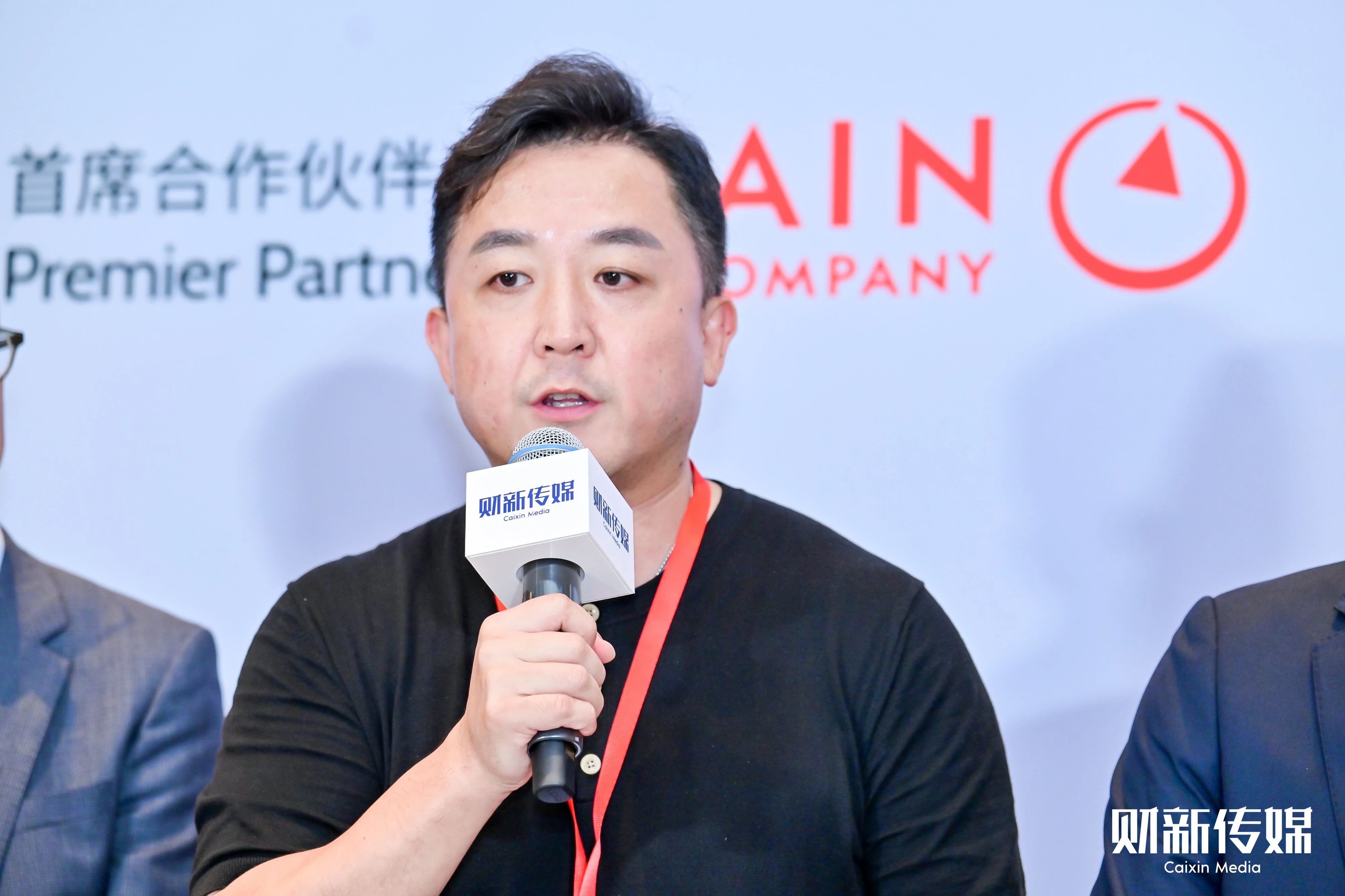
Zheng Wenxian, Vice President, Shenzhen Intellifusion Technologies
Zhu Qiuguo, Founder and CEO of Deep Robotics, explained that embodied intelligence is developing along two paths: AI driven by large models and robotics. Bridging the gap between robotics and large language models is technically challenging. "Transforming AI into technologies that understand and interact with the physical world requires overcoming many hurdles. If achieved, robotics could see a wave of large-scale embodied applications," he said. While the true technological "singularity" may not have arrived, demand for applications is already here.
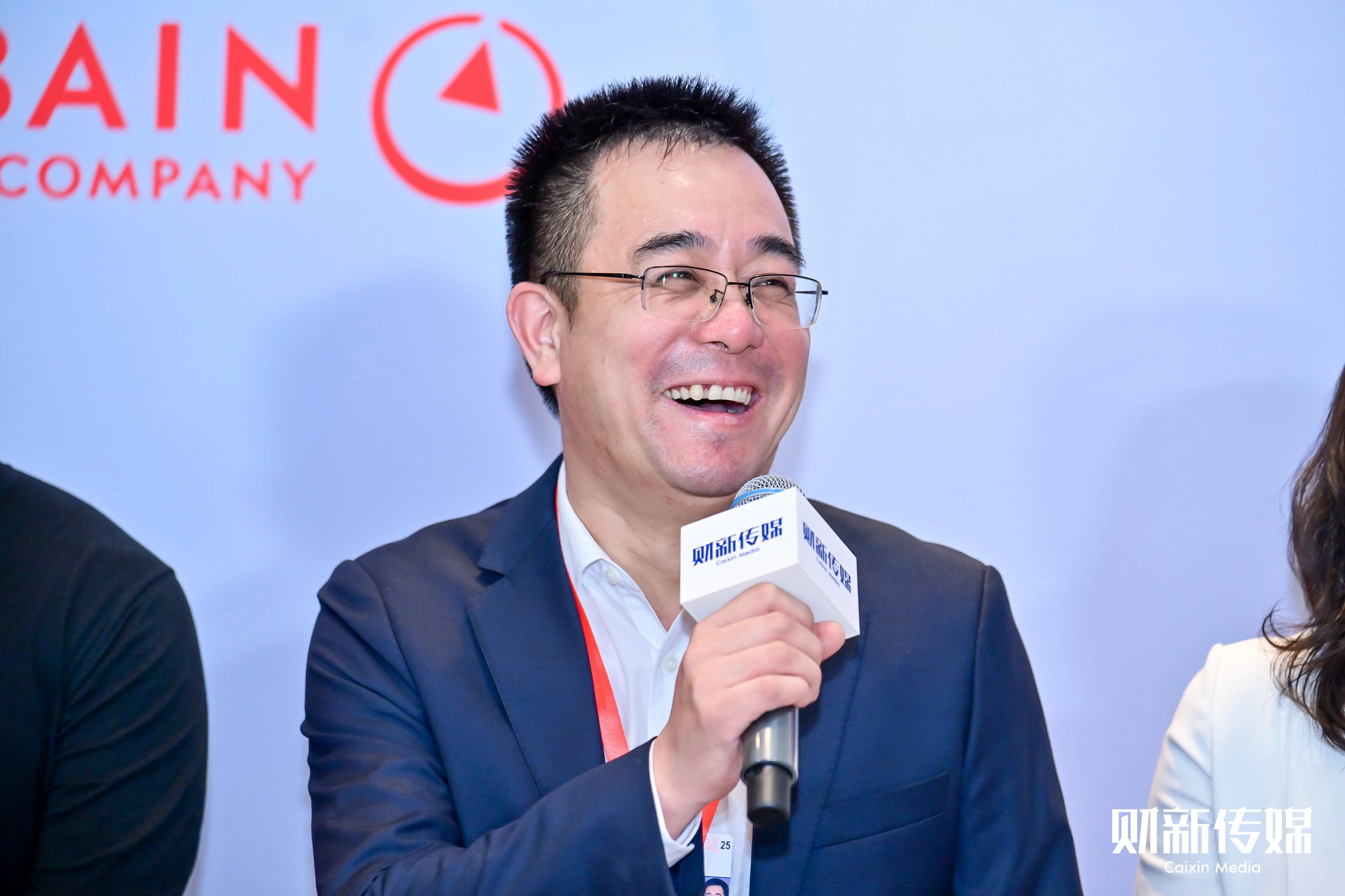
Zhu Qiuguo, Founder and CEO, Deep Robotics
Zhu Ning, Professor of Finance at SAIF, discussed AI's impact from a financial perspective. He highlighted AI’s integration into investment research and analysis as a disruptive force in global capital markets, and noted that fintech advances are improving financial inclusion and reducing costs. In education, AI is set to reshape career development. "We often tell young students not to focus on what AI will replace, but on how to coexist with AI and use it to do their jobs better," he said. While technology is neutral, its application can have broad and far-reaching consequences, raising ethical, moral, and regulatory challenges that must be addressed.
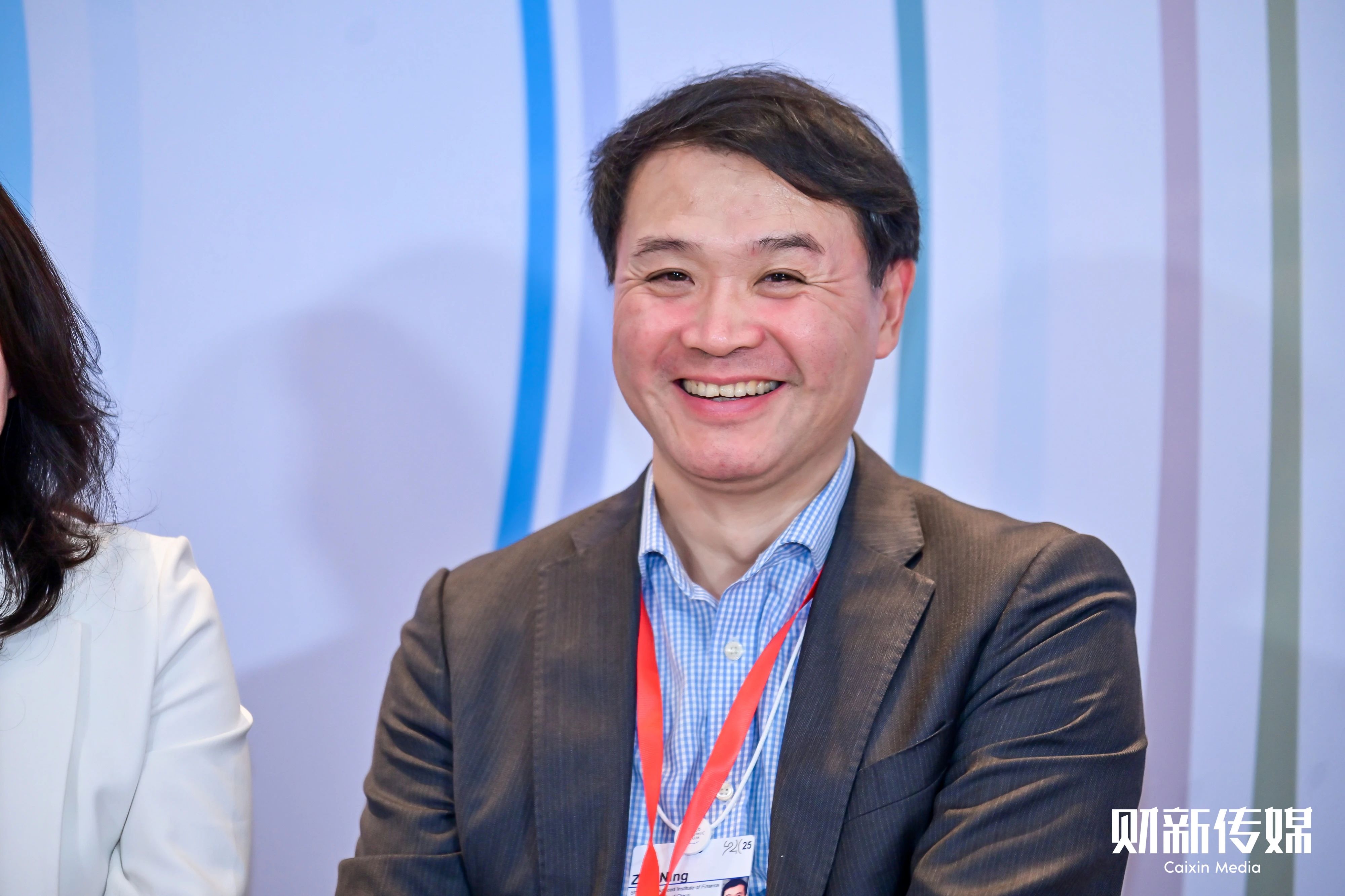 Zhu Ning, Professor of Finance, SAIF, Shanghai Jiao Tong University
Zhu Ning, Professor of Finance, SAIF, Shanghai Jiao Tong University
Wang Nan, Senior Vice President and Secretary of the Board at Neusoft Corporation, observed that the "AI+" inflection point has arrived in China, particularly in electric vehicles, where booming demand has driven industry growth. Urgent demand is also propelling the development of AI+ applications in other sectors. In healthcare AI, leading doctors are increasingly participating in AI development, integrating specialist knowledge with model training. "Current AI applications are not about replacing doctors, but raising the capabilities of ordinary physicians to the standard of top-tier hospitals—true inclusivity," Wang said.
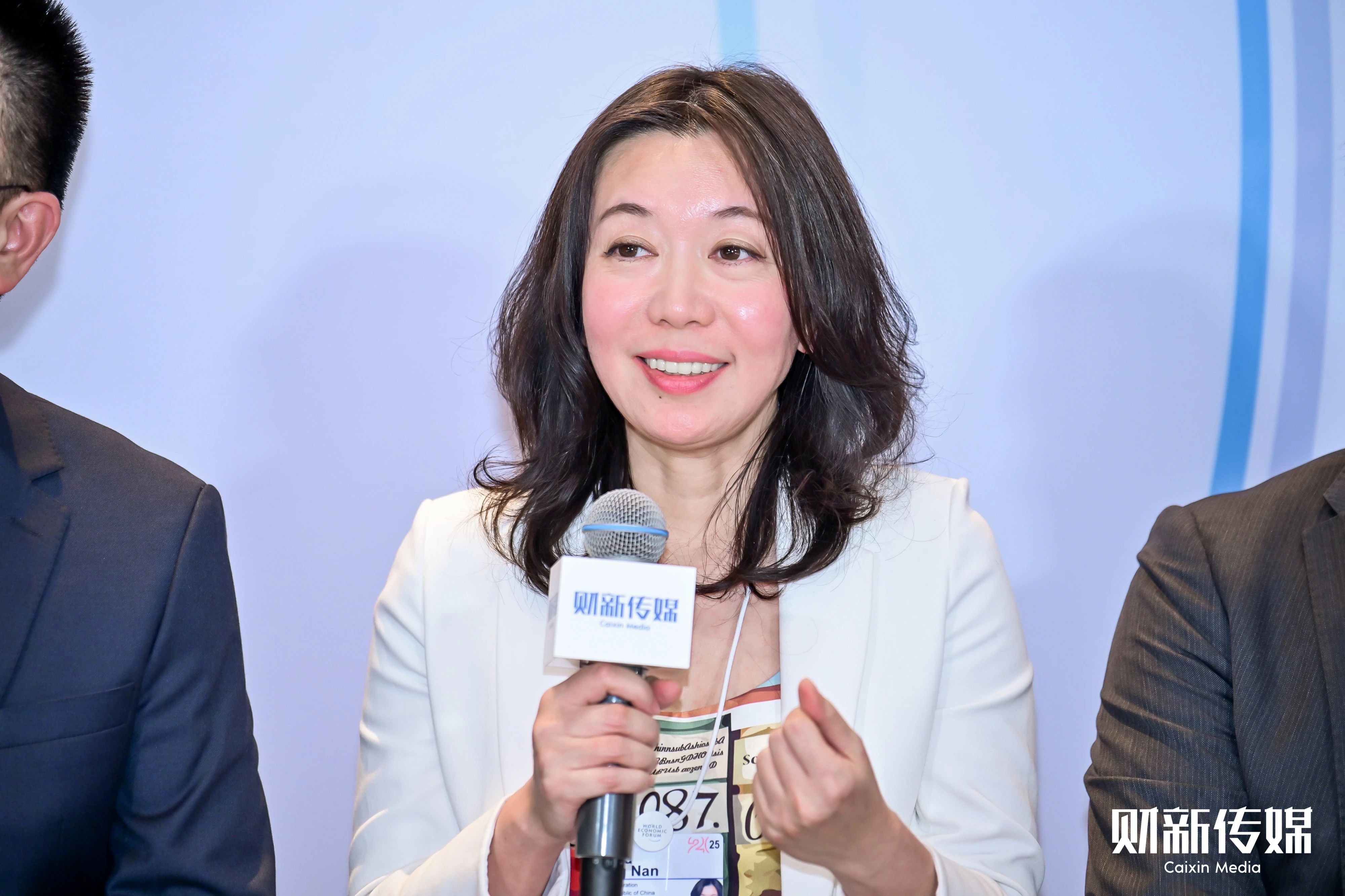
Wang Nan, Senior Vice President & Secretary of the Board, Neusoft Corporation
Since 2010, Caixin has participated in the World Economic Forum as a media partner, hosting sub-forums and roundtables at both Winter and Summer Davos. Since 2013, Caixin has organized official debate sessions at the WEF's annual meetings, and pioneered side events such as breakfast meetings, CEO luncheons, evening talks, and dinners, offering high-level platforms for discussion and networking with Davos speakers.



 微博
微博 微信
微信